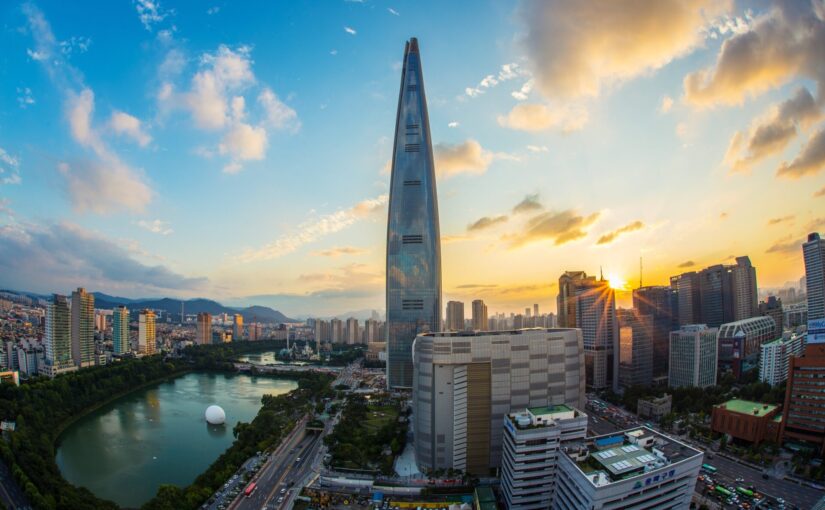Field of study in Wageningen: Bsc Food Technology
Study period exchange: 01/03/2022 – 01/07/2022
Country (exchange): South Korea
City (exchange): Seoul
University (exchange): Seoul National University
2. Motivation for exchange
Why did you choose to go on study exchange?
I’ve always been interested in East-Asian countries and wanted to experience living and studying there. I could already understand some basic Korean and wanted to learn more about the culture see the country.
What is the reason you chose for this country/university?
When you arrive at Incheon Airport, you can take the subway to Seoul. You have to buy a T-money card at a convenience store (like 7-11, GS25 or CU, you can just ask for it at the counter) or vending machine. It is only a couple of euros and you can use it for the subway and bus. Don’t forget to put some money on it first, you need cash for this! You can charge your card at the convenience store or with the help of a machine in the subway station.
3. Accessibility to reach destination
Do you have any tips to reach your exchange destination?
When you arrive at Incheon Airport, you can take the subway to Seoul. You have to buy a T-money card at a convenience store (like 7-11, GS25 or CU, you can just ask for it at the counter) or vending machine. It is only a couple of euros and you can use it for the subway and bus. Don’t forget to put some money on it first, you need cash for this! You can charge your card at the convenience store or with the help of a machine in the subway station.
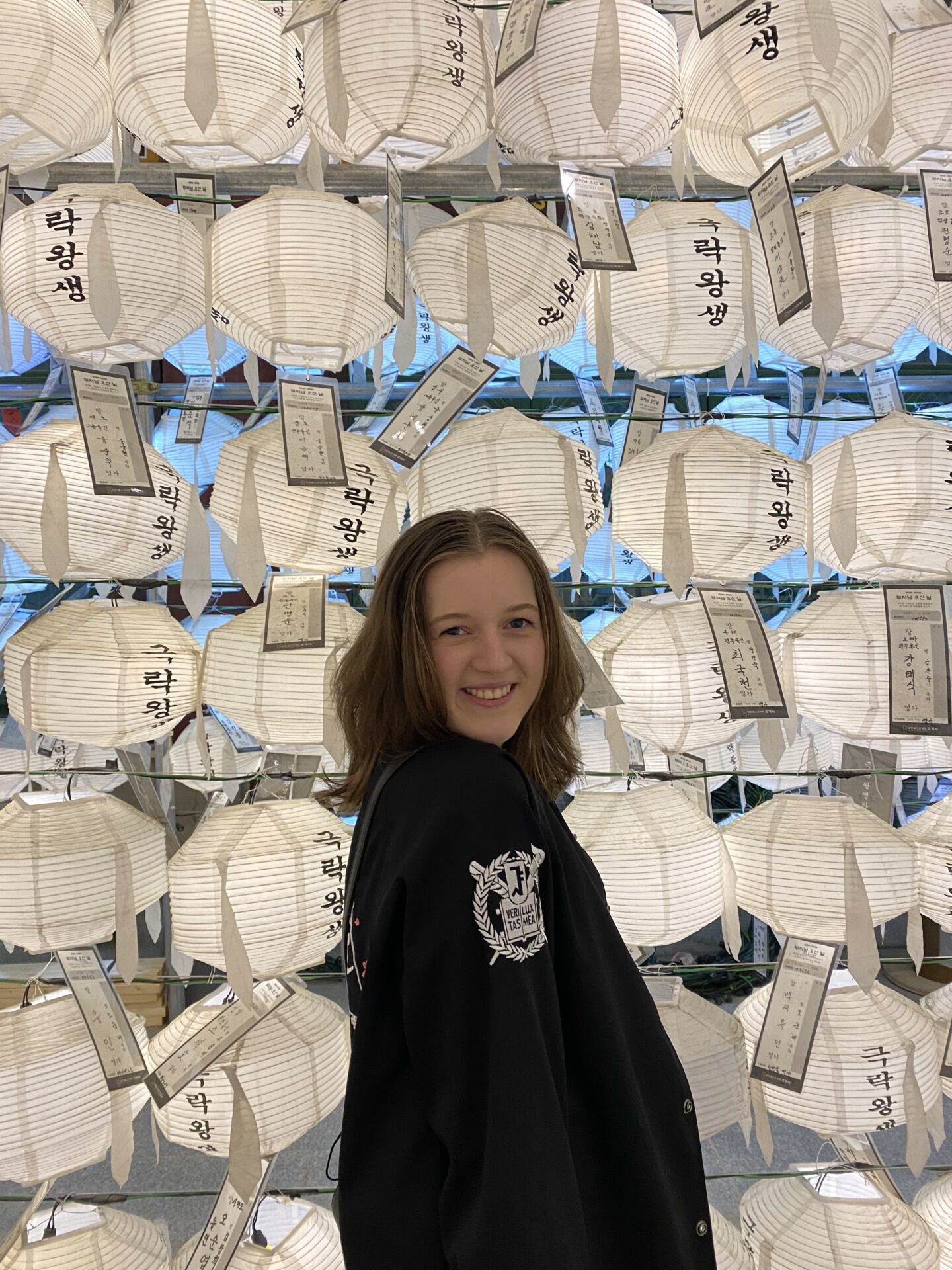
4. University and studying
Could you provide some general information about the followed courses?

How is the study formalized?
It differs greatly per course. Some courses are really easy, from what I’ve heard courses that are focused towards international students (like cultural courses) are quite easy and scientific courses are much more difficult. With most courses they expect you to do a lot of independent studying. For the introduction to Cell Biology course we had to give presentation in duos and we had groupwork for the introduction to Psychology course. I didn’t have any lab classes since those are not that common and are offered as separate courses. The difference between undergraduate and graduate courses is quite big in terms of study forms. Undergraduate courses are more individual-focused, memorizing facts and classic lectures, while graduate courses are more focused on discussing lesson material together, not following a course book, but reading recently published articles and knowledge from the professor. When the semester started I was quite stressed out from the workload and I couldn’t understand what they were saying during the physics and cell biology courses. But after talking to some students they said that you have to be really bad to not pass the course, since they are quite easy with the grading. For example, I totally messed up my midterm and final exam for physics but since it was graded on a curve and many people dropped out, I eventually got a B+.
What is the culture of the university?
Local students aren’t approachable except for the student from the buddy program (although not all of them). Koreans are not that open to new friends and often keep their friend group the same, especially at Seoul National University since they are mostly focussed on studying and afterschool activities, usually their schedules are packed. Lecturers are quite approachable, but there is a clear hierarchy present. I would advice to sign up for the SNU buddy program, you can make a lot of friends that are also exchange students and some Korean students that are open to meet foreigners.
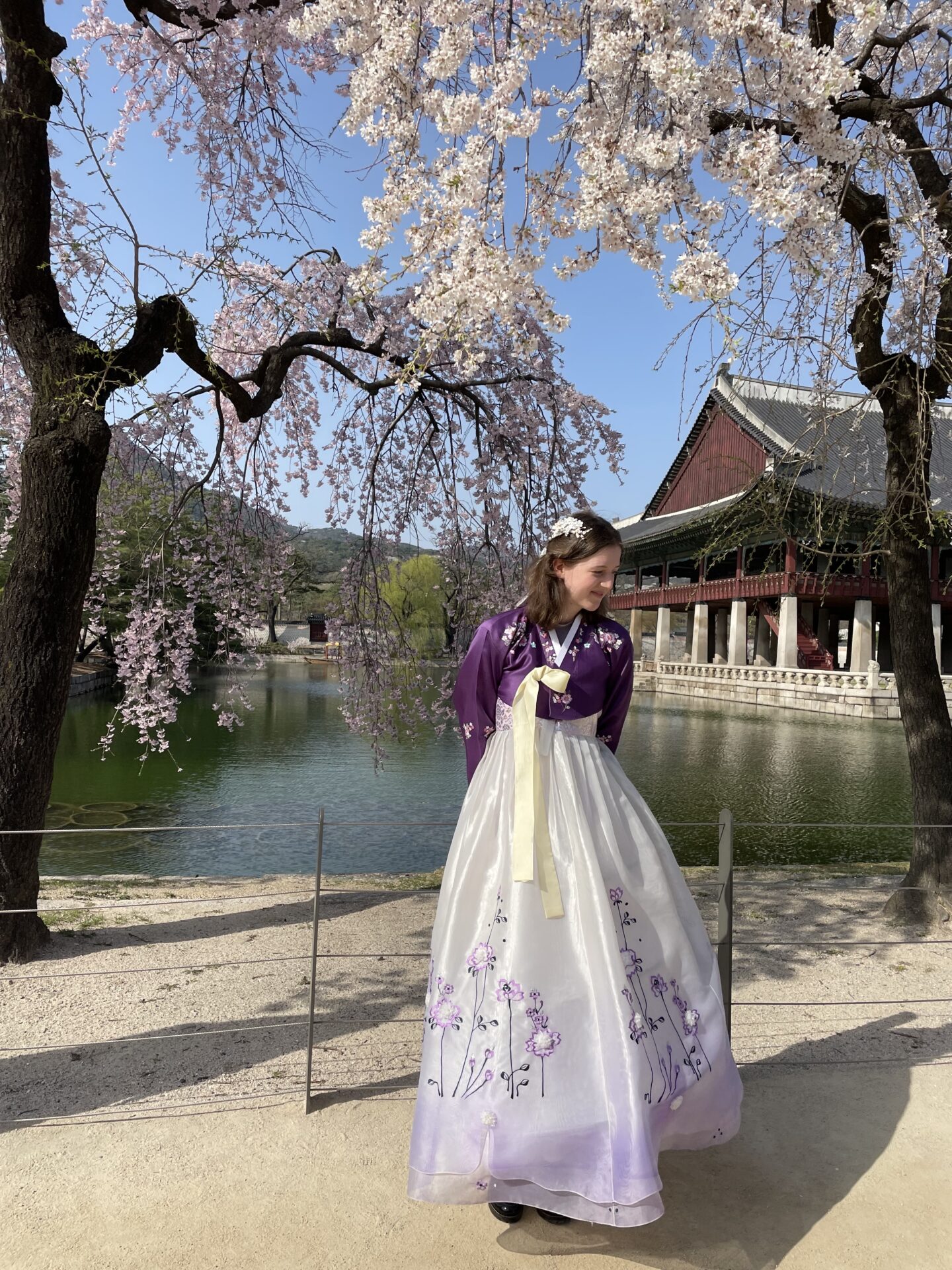
What does the university offer the student additionally?
There are school lunches and dinners for very low price, but I never went there because I was scared. Everything at the university is catered towards Korean students and very little people (especially workers) speak decent English. So there are lots of clubs and sports facilities its just difficult for foreigners to get in or understand how it works, since nobody helps or explains it to you. Of course you can ask someone or your Korean buddy to help and it should be possible. I heard some people that were in a badminton club (if I remember correctly) that were very enthusiastic about it. But unfortunately the university doesn’t really offer anything to international students, you pay more but you get less.
5. Housing-travelling-living
What are the possibilities for housing?
A lot of my friends stayed in the dorms, which is really cheap and you share a bedroom with another person. Unfortunately the results are out very late, right before the semester starts and if you don’t get in you have to find a place to stay on really short notice. I stayed at a share house close to Campus with two other exchange students which I personally preferred. A friend of mine stayed in a goshiwon, which is a very small room with kitchen and bathroom included. They are quite cheap but not so comfortable and since you live alone it may become lonely.
What is the culture of the country like?
I paid around 400 euros per month for a shared house with two other students. Dorm rooms are around 100-200 euros per month, depending on the building and room, you usually share a bedroom with one other and a house with 6 in total.
Could you give a general price indication of the place of residence compared to living in Wageningen?
The subway and bus system works great and is really cheap. You buy a T-money card at a convenience store for a couple euros, which you charge with cash. When you use the subway an automatic payment of around one euro is done (1,250 won) and a few cents can be added if you travel far. If you take the bus before/after the subway you pay nothing or almost nothing. Subways stop running around midnight and continue again around 5:30 am. Use the app ‘Naver map’ or ‘Kakao map’ for directions, Google maps doesn’t work there. Taxis are quite cheap as well and there is an app with which you can put in the place you want to go to and they assign you a taxi, which makes it a lot easier because you don’t have to communicate it in Korean.
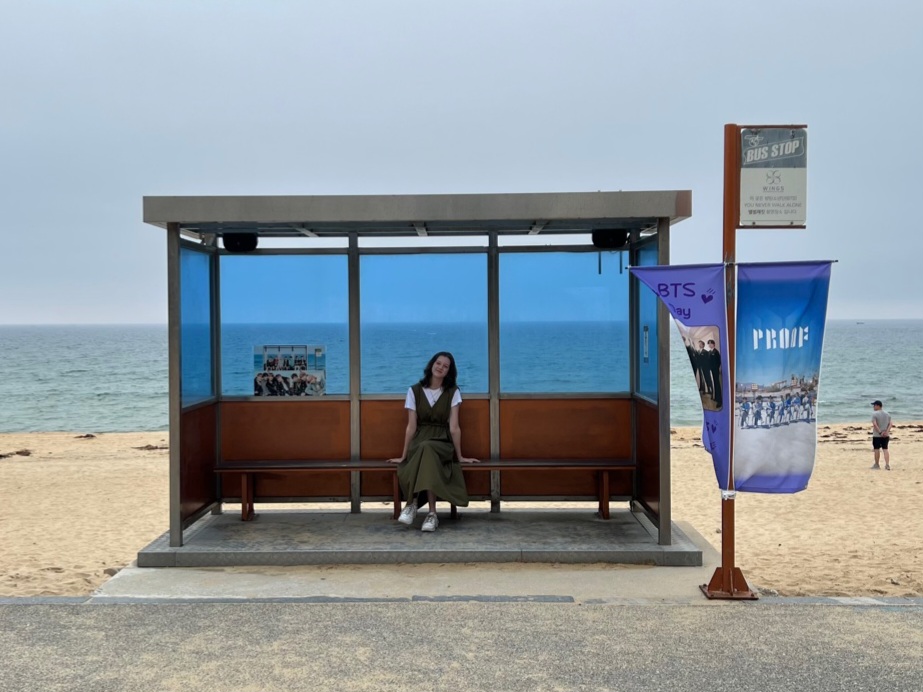
Could you give some information about public transport infrastructure?
The subway and bus system works great and is really cheap. You buy a T-money card at a convenience store for a couple euros, which you charge with cash. When you use the subway an automatic payment of around one euro is done (1,250 won) and a few cents can be added if you travel far. If you take the bus before/after the subway you pay nothing or almost nothing. Subways stop running around midnight and continue again around 5:30 am. Use the app ‘Naver map’ or ‘Kakao map’ for directions, Google maps doesn’t work there. Taxis are quite cheap as well and there is an app with which you can put in the place you want to go to and they assign you a taxi, which makes it a lot easier because you don’t have to communicate it in Korean.
6. Free time
What are must-sees in the area?
You can go anywhere in Seoul easily by public transport so I highly recommend to see as much of Seoul as possible.
-
- I highly recommend going to Gyeonbokgung palace and rent a hanbok in one of the shops nearby.
- Hongdae for shopping and busking
- Going to Namsan tower at night for the night view is also nice.
- You can take bus 7770 to Suwon, to see the fortress and visit some nice cafes.
- Busan and Jeju
- During cherry blossom season: Seokchon lake, Yeouido hangang park, route van campus naar seoul nat’l univ. station (nakseongdae park)
- Dongdaemun design plaza
- Lotte world (buy a pass with which you can cut the lines or go when its not busy because we could only do 2 rollercoasters because of the enormous waiting lines)
- Nami island
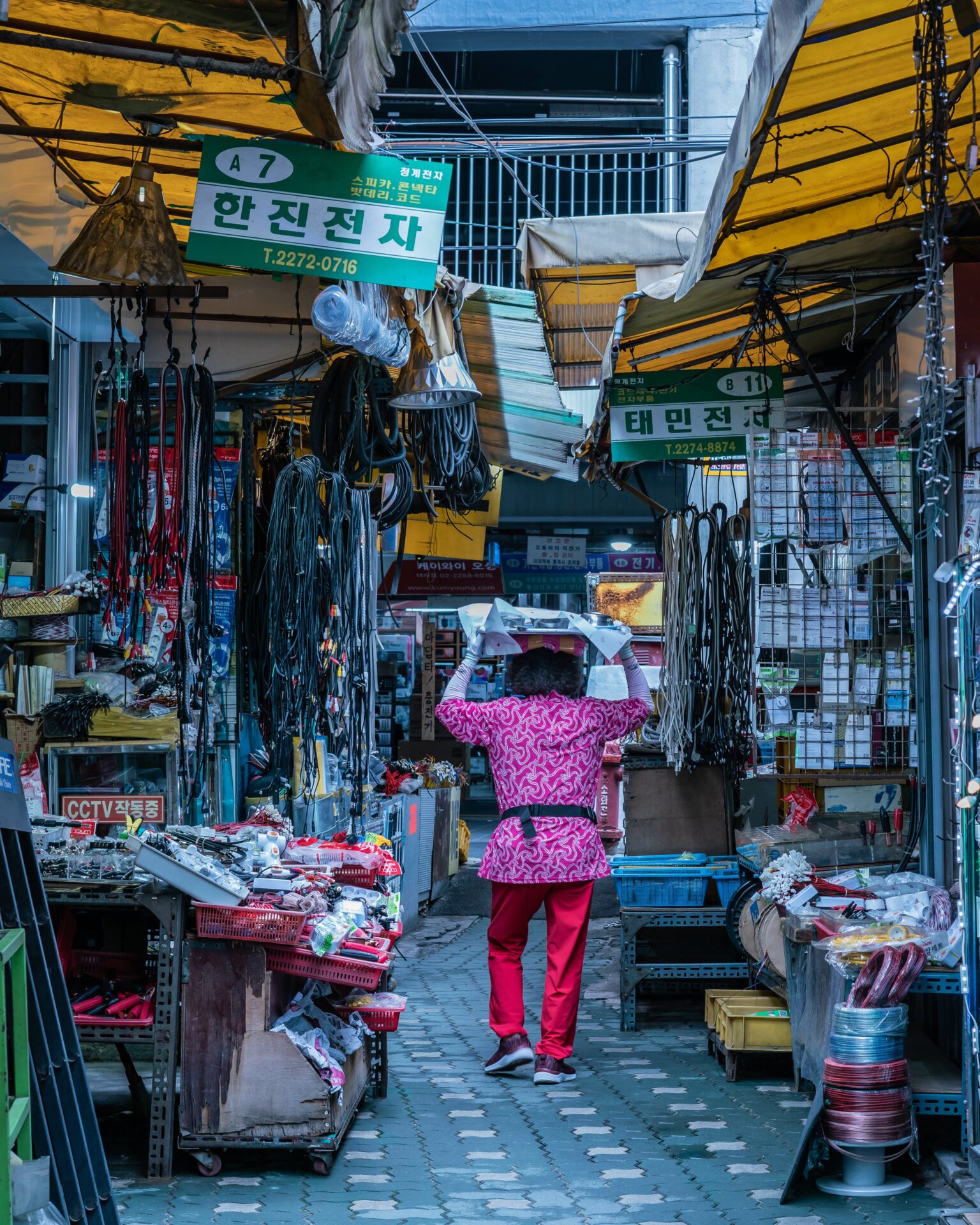
What does not appear in the travel guide, but is worth a visit?
We went to Gangneung, which is the east coast. Even though the weather wasn’t that good, we were pleasantly surprised. Would recommend walking along the beach, light some fireworks and listen to the busking performances.
Do you have general tips and tricks about leisure time?
There is a street close by seoul nat’l univ. station where all the students go to eat. Recommendations: jjajangmyeon and fried pork at Hongkong 0410, sushi at 동경산책, fusion food at 나의 식탁, take out is best and cheap at LaBab and 싸다김밥, great Japanese ramen at 멘쇼우라멘 and로향양꼬치 for lamb meat. The most delicious food I ate during the whole trip was at Haidilao, close to Hongik univ. station. There is great food and cute cafes everywhere in Seoul and I would recommend trying as much as you can. Ikseondong is a very cute traditional Korean looking area with many cafes and restaurants. Seongsu (close to Seoul forest) is a trendy area at the moment with many themed cafes. Going out is best in either Hongdae or Itaewon, you can also try going out in Gangnam, but there is an overwhelming amount of Koreans there and they don’t always let in foreigners.
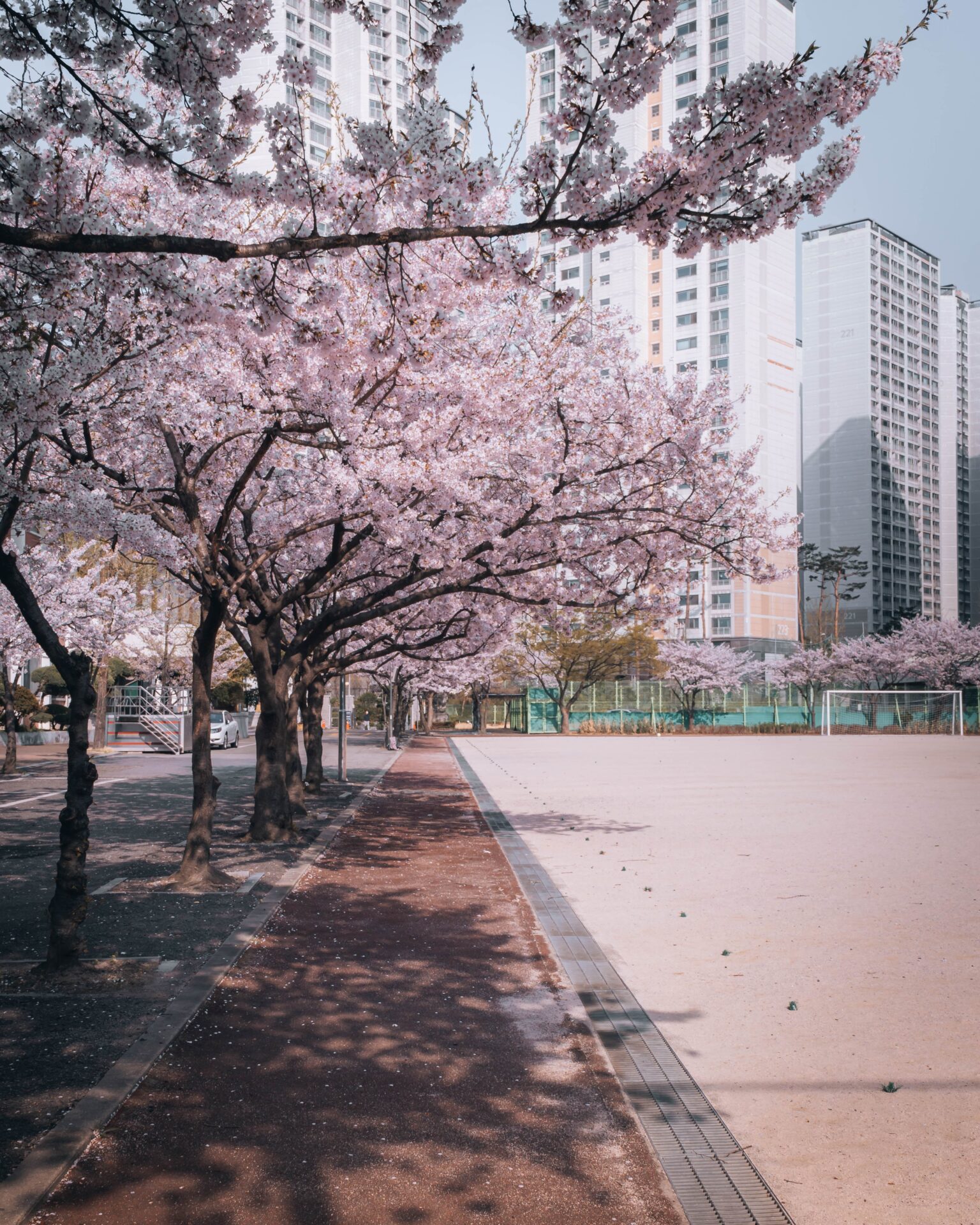
7. Challenges & best moment abroad
What was a challenge you have experienced?
Communication with locals was really an issue. I knew some basic Korean before going, which helped a lot but I was still struggling. There is a whole technology system in Korea which connects everything and makes life really easy and high-tech, but if you’re a foreigner its nearly impossible to enter this system. You need a Korean phone number, Alien registration number, Korean bank account and know Korean to be able to order delivery food, order stuff online or make reservations. I never managed to be able to do this, since you get your Alien registration card a few months after arrival and the workers at the Korean bank couldn’t really understand English or were willing to help me.
What was your best memory abroad?
Seoul Tower sky bridge. You pay quite a bit of money but for me it was definitely worth it. The view was so pretty during golden hour and it wasn’t that scary to walk over the bridge. Visiting Jeju and Busan was also one of my best memories.
8. Contact Details
Would you like to ask Bente more questions about her exchange? Send her a mail: benteweertman@gmail.com

